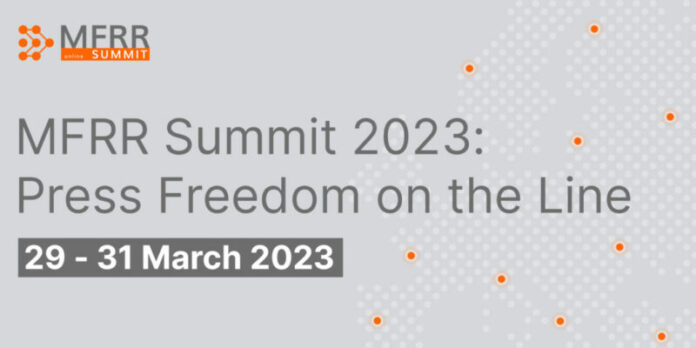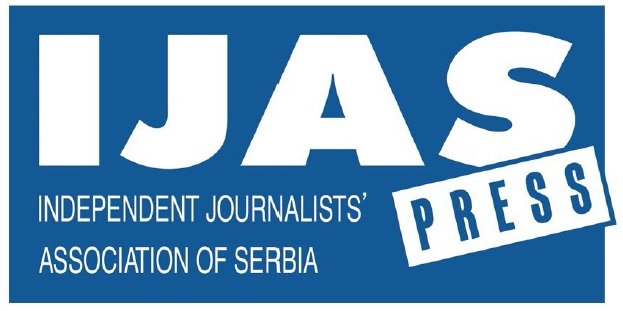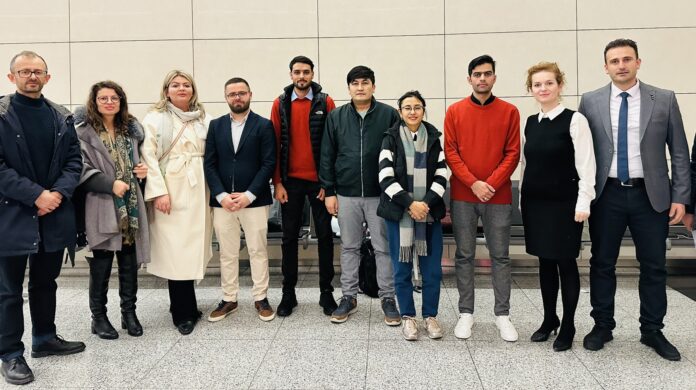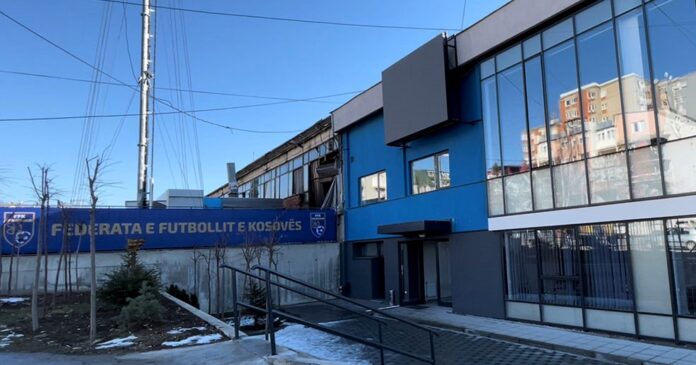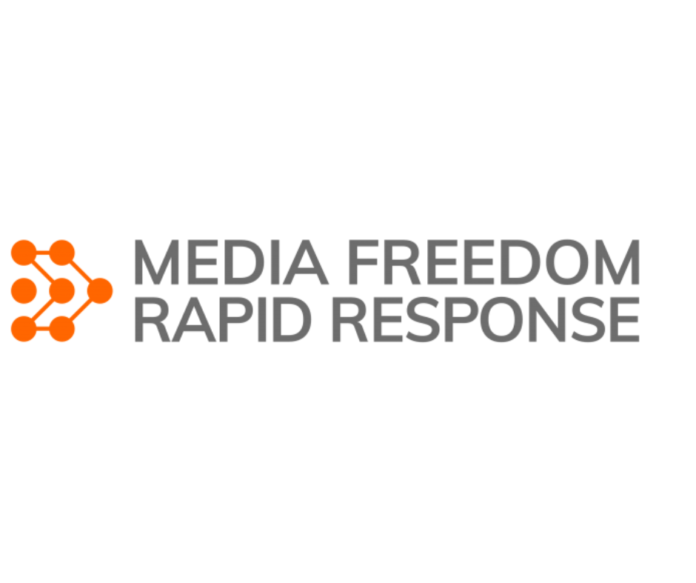PODGORICA, 01.02.2023. – 2022 was the year in which a significant number of cases of attacks on journalists were again recorded in Montenegro. The data show that journalists and media workers are still often the target of physical attacks or threats during the performance of work tasks, while there are more and more online threats via social networks.
Threats through social networks and preventing reporting
Last year, the Police Directorate (PD) registered a total of 21 cases of attacks on journalists and media outlets, due to their professional involvement. Of these, there were 11 cases of threats via social networks or the phone and 10 cases of physical attacks or attempts to obstruct journalists and media workers during their work tasks.
“Of the mentioned number, the competent state prosecutor qualified 12 events as criminal offenses for which prosecution is undertaken ex officio. Seven events have been solved and the perpetrators have been prosecuted, while five events have not been solved for now”, according to the PD data submitted to the Trade Union of Media of Montenegro (SMCG).

Photo: Canva.com
The police also say that in two incidents, police officers, analyzing the case files, assessed that they were offenses under the Law on Public Order and Peace, so misdemeanor proceedings were initiated.
In three cases, the competent prosecutor assessed that there were no elements of a criminal offense to be prosecuted ex officio, while four cases with completed files were submitted to the prosecutor for assessment, decision-making and legal qualification, according to the Police Directorate.
Analysis of data from the Police Directorate shows that journalists and media workers are still often targeted during reporting from risky events such as protests and other public gatherings. The participants of those events on several occasions tried to prevent journalists and media workers from filming and reporting, according to the filed reports. They did this even when journalists and media workers had a prominent “press” sign on them.
As for threats, they are most often sent to journalists via social networks. In several cases, the authorities were unable to find out who sent the threatening messages, so the investigation is still ongoing or the cases have been archived.
The Police Directorate also said that in 2022, they carried out a security threat assessment for nine journalists and two media houses. Based on the assessments made and by decision of the Government, the police are protecting two journalists.
The first year of application of the amended Criminal Code

Photo: Canva.com
2022 was also the first year of the application of the amended Criminal Code (CC) of Montenegro, which increased penalties for attacks on journalists and media workers. At the end of 2021, on the initiative of the non-governmental organization Action for Human Rights (HRA) and the SMCG, which was supported by other organizations dealing with the media, the Parliament of Montenegro unanimously adopted amendments to the CC, which increased the penalties for criminal acts of coercion, jeopardizing security, grievous bodily harm and aggravated murder, if committed against journalists and media workers, in connection with the performance of their work.
Competent authorities, prosecutor’s offices and courts, acted in some cases of attacks on journalists and media workers according to the amended Criminal Code. Thus, according to the amended CC, two proceedings for the criminal offense of coercion against the journalist Jadranka Ćetković are ongoing before the competent judicial authorities in Bijelo Polje. One of those two cases shows different actions of the competent authorities in relation to the same event.
Namely, the Basic State Prosecutor’s Office (ODT) in Bijelo Polje dismissed the journalist’s criminal complaint four times against Elvis Palavrtić from Plav, who, as she says, insulted her and tried to prevent her from carrying out her journalistic work, i.e. taking photos, on the plateau in front of the High Court in the middle of 2022. The ODT did this, although each time the Higher State Prosecutor’s Office (VDT) in Bijelo Polje accepted the complaint of journalist lawyer Mirko Bošković against the decision to dismiss the criminal complaint, assessing that the complaint was founded and that the Basic Prosecutor’s Office should conduct additional evidentiary actions. The VDT also indicated that certain criminal-legal positions and conclusions of the lower prosecutor’s office are unacceptable.
“Everything that happened in this case really represents a kind of legal paradox, which occurred as a result of a series of omissions and wrong steps by the prosecution. Namely, the Basic Prosecutor’s Office in Bijelo Polje, despite the clear orders and instructions of the Higher Prosecutor’s Office, fails to comply with them and on the next four occasions passes decisions on rejecting the criminal complaint, after, I repeat, the Higher Prosecutor’s Office accepted the complaint of the injured party’s attorney four times, with almost identical explanation and instructions to the ODT. As far as I know, a similar case has not happened in our practice”, says Bošković.

Photo: Canva.com
He adds that already after the first dismissal of the criminal complaint, the ODT in Bijelo Polje, due to the attack on the journalist Ćetković, submitted a request to initiate misdemeanor proceedings to the Court for Misdemeanors in Bijelo Polje, at the same time not letting the legal deadlines for filing a complaint by the injured party or initiating prosecution from her. Although the Higher Prosecutor’s Office assessed that the journalist’s complaint was well-founded and returned the case to the ODT to undertake certain evidentiary actions and provide a more complete explanation, the Misdemeanor Court in Bijelo Polje conducted first-instance misdemeanor proceedings against Palavrtic and found him guilty.
So, we have at the same time a first-instance decision of the Court for Misdemeanors and an active proceeding before the Basic Prosecutor’s Office, against the same defendant and on the occasion of the same event, concludes Bošković.
Otherwise, the Misdemeanor Court sentenced Palavrtić to a fine of 150 euros “because he insulted and behaved insolently towards Ćetković, while she was performing her journalistic task”. As 100 euros were deducted from his fine for the time he was detained by the decision of the ODT, in the end he had to pay 50 euros, or 33.3 euros, within 15 days from the day of the verdict.
This article was created through the project “Safety of journalists through judicial practice” implemented by the Trade Union of Media of Montenegro (SMCG). The project is supported by the Center for Monitoring and Research (CeMI) within the program “Access to justice and human rights in Montenegro – Trial monitoring project 2021 – 2023” financed by the European Union and co-financed by the Ministry of Public Administration.
The content of the article is the sole responsibility of SMCG and does not necessarily reflect the views of CeMI, the European Union or the Ministry of Public Administration.


